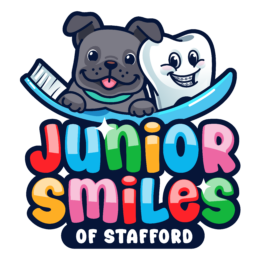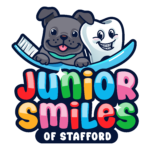Is Mouthwash Safe for Kids?

As a parent, you always look out for your child’s well-being, and oral hygiene is no exception. You might be wondering, if mouthwash for kids is safe. The answer is yes but with some important guidelines.
In this article, we’ll explore the safe use of mouthwash for children, helping you make informed decisions for their oral health.
We’ll cover the right age to start, the type of mouthwash that’s best for young smiles, and tips to ensure its use is both effective and safe. Remember, your child’s dental care journey is a crucial part of their overall health, and we’re here to guide you every step of the way with friendly, expert advice.
Importance of Oral Hygiene in Children
As a parent, you play a crucial role in establishing a strong foundation for your child’s oral hygiene. Good dental habits go a long way in ensuring your child’s smile stays bright and healthy. Starting oral hygiene early is key. It’s not just about preventing cavities but also about setting the stage for lifelong dental health.
Your child’s oral care routine should include brushing twice daily and flossing regularly. This basic routine helps prevent plaque buildup, tooth decay, and gum disease. Moreover, oral hygiene impacts overall health. Poor dental care can lead to issues beyond toothaches, including problems with eating, speaking, and even concentration in school due to discomfort or pain.
Instilling these habits early also helps children understand the importance of regular dental visits. Regular check-ups with a pediatric dentist, like those at Junior Smiles of Stafford, can catch issues early and provide professional cleanings, further safeguarding their oral health. Remember, your attitude towards dental care can greatly influence your child’s perspective. Approach these routines with a positive and fun attitude to make dental care an enjoyable part of their daily life.
Safety of Mouthwash for Kids
When it comes to introducing mouthwash into your child’s dental routine, safety is naturally your top concern. Mouthwash can be a great addition to oral hygiene practices, but it’s important to choose the right type and ensure it’s used correctly.
Choosing the Right Mouthwash for Children
Firstly, opt for alcohol-free mouthwashes specifically designed for children. These formulations are gentler and safer, minimizing any risk of irritation or discomfort. Additionally, they often come in child-friendly flavors, making them more appealing to young ones.
Proper Usage of Mouthwash
The safety of mouthwash also depends on proper usage. Teach your child to swish the mouthwash around their mouth gently and spit it out completely. Swallowing mouthwash can be harmful, so supervision is key, especially for younger children. Explain the purpose of mouthwash in a way they understand – it’s not just a rinse but a tool to keep their teeth strong and free from harmful bacteria.
Mouthwash as an Addition to Oral Care
Remember, mouthwash is not a substitute for brushing or flossing but an additional step for better oral health. Encourage your child to see it as part of their superhero toolkit for fighting cavities and keeping their smile sparkling.
When Can Kids Start Using Mouthwash?
The right age to introduce mouthwash into your child’s dental care routine is a common question among parents. The American Dental Association generally recommends starting mouthwash at around the age of 6. This age is typically when children have developed the necessary skills to rinse and spit without swallowing the mouthwash.
Before introducing mouthwash, it’s important to ensure your child is comfortable with the basics of oral hygiene. They should be adept at brushing their teeth twice daily and flossing regularly. These foundational habits are crucial, and mouthwash should be seen as a supplementary step, not a replacement for them.
Remember, every child is different, and some may take longer to get comfortable with the idea of using mouthwash. Be patient and provide guidance as they learn this new aspect of oral hygiene. With the right approach, mouthwash can be a beneficial addition to your child’s dental care routine from the age of 6.
Benefits of Mouthwash for Children
Introducing mouthwash into your child’s dental routine can bring a host of benefits, complementing their brushing and flossing habits. Let’s dive into some of the key advantages of using mouthwash for children.
Enhances Oral Hygiene
Mouthwash can reach places that toothbrush and floss might miss, offering an additional layer of cleaning. This is especially beneficial for children who are still perfecting their brushing techniques. A good swish of mouthwash helps in reducing plaque, a key factor in tooth decay and gum disease.
Strengthens Teeth
Many mouthwashes for kids contain fluoride, which is crucial in strengthening tooth enamel. This added fluoride can help in the fight against cavities, acting as a shield for your child’s teeth against the acids produced by bacteria in the mouth.
Reduces Bad Breath
Children are not immune to bad breath, which can be a source of embarrassment and discomfort. Mouthwash helps in keeping their mouth fresh and odor-free. It’s a quick fix for bad breath, especially after meals, giving your child a boost of confidence.
Fights Bacteria
Mouthwash has antiseptic properties that help in killing harmful bacteria in the mouth. This reduces the risk of oral infections, promotes healthier gums, and maintains a balanced oral environment.
Read More | Bad Breath in Children: What You Need to Know
Best Types of Mouthwash for Kids
When choosing a mouthwash for your child, it’s important to pick one that is both effective and safe. Here are some types of mouthwashes that are great for kids:
Alcohol-Free Mouthwash
Alcohol-free mouthwashes are the safest option for children. They are less harsh and reduce the risk of burning or irritation, making the experience more pleasant for your child.
Fluoride Mouthwash
Fluoride mouthwashes are excellent for strengthening tooth enamel and preventing cavities. They are a great addition if your child is particularly prone to tooth decay.
Natural Mouthwash
For parents who prefer natural products, there are mouthwashes made with natural ingredients like aloe vera and xylitol. These are gentle and effective, often free from artificial colors and flavors.
Antiseptic Mouthwash
Antiseptic mouthwashes are beneficial for children who have a higher risk of gum disease or bacterial infections. They help in reducing bacteria and keeping the gums healthy.
Whitening Mouthwash
While not a necessity for kids, whitening mouthwashes can be used for older children who are conscious about the appearance of their teeth. These should be used sparingly and under adult supervision.
Mouthwash for Sensitive Teeth
If your child has sensitive teeth, there are mouthwashes designed to be gentle and soothing. These can help reduce sensitivity and provide comfort during oral care routines.
When selecting a mouthwash, always consider your child’s specific dental needs and preferences. Consult with your pediatric dentist for personalized recommendations that best suit your child’s oral health requirements.
Safety Considerations When Using Kids’ Mouthwash
Ensuring your child’s safety and well-being is paramount when introducing any new element in their daily routine, especially something like mouthwash used in their delicate oral cavity. Let’s delve into some key safety considerations when using kids’ mouthwash.
Supervise Usage
The first and foremost safety rule is to always supervise your child when they use mouthwash. This is especially important for younger children who might be tempted to swallow the mouthwash.
Your presence ensures they use the correct amount, swish it properly, and spit it out completely. Supervision also provides an opportunity to make mouthwash usage a fun and interactive part of their daily routine.
Choose Alcohol-Free Formulas
When selecting a mouthwash for your child, always opt for alcohol-free formulas. Alcohol-containing mouthwashes can be harsh on a child’s sensitive oral tissues and carry a risk if accidentally ingested. Alcohol-free mouthwashes are gentler and just as effective in maintaining oral hygiene.
Follow Age Recommendations
It’s important to adhere to age recommendations on mouthwash products. Most children’s mouthwashes are recommended for kids over the age of six, as they’re more likely to understand the concept of swishing and spitting. Using mouthwash at a very young age might pose a risk of swallowing, which can be harmful.
Avoid Overuse
Like any other product, mouthwash should be used in moderation. Overuse can lead to an imbalance in the oral microbiome or even tooth sensitivity. Teach your child to use the recommended amount (usually a small capful) and no more than once or twice a day as part of their regular dental hygiene routine.
Be Mindful of Allergies and Sensitivities
If your child has any known allergies or sensitivities, particularly to flavors or ingredients commonly found in oral care products, be extra cautious. Read labels carefully to ensure the mouthwash you choose does not contain any potential allergens. In case of any adverse reactions, discontinue use immediately and consult your child’s dentist.
By keeping these considerations in mind, you can safely incorporate mouthwash into your child’s oral hygiene routine, helping them maintain a healthy, happy smile while instilling good dental habits from a young age.
Remember, if you have any doubts or questions, it’s always a good idea to consult with a pediatric dentist for guidance tailored to your child’s specific needs.
Protect Your Child’s Oral Health. Consult Junior Smiles of Stafford
Ready to take the next step in ensuring your child’s bright and healthy smile? At Junior Smiles of Stafford, we’re dedicated to providing top-notch pediatric dental care in a warm, friendly, and fun environment.
Whether it’s your child’s first dental visit or a routine check-up, our team of experts is here to guide you every step of the way. Schedule an appointment today and experience the difference in pediatric dental care.

